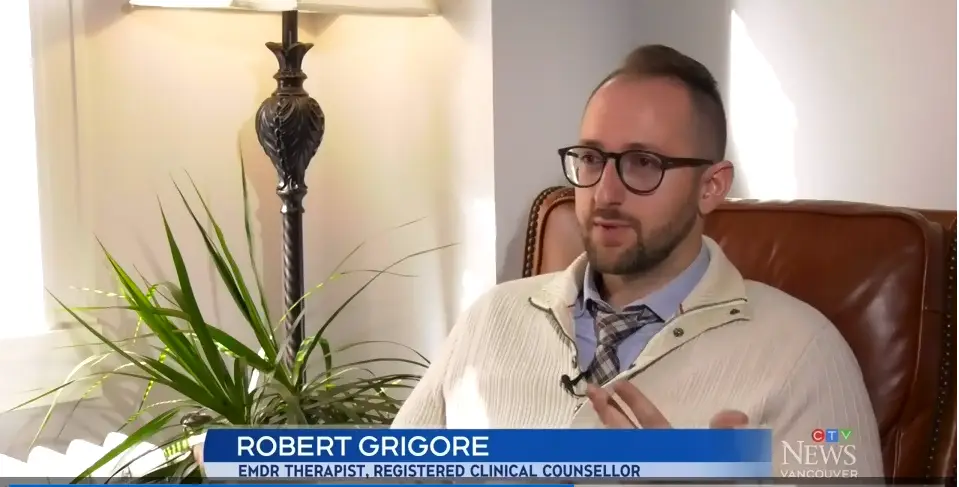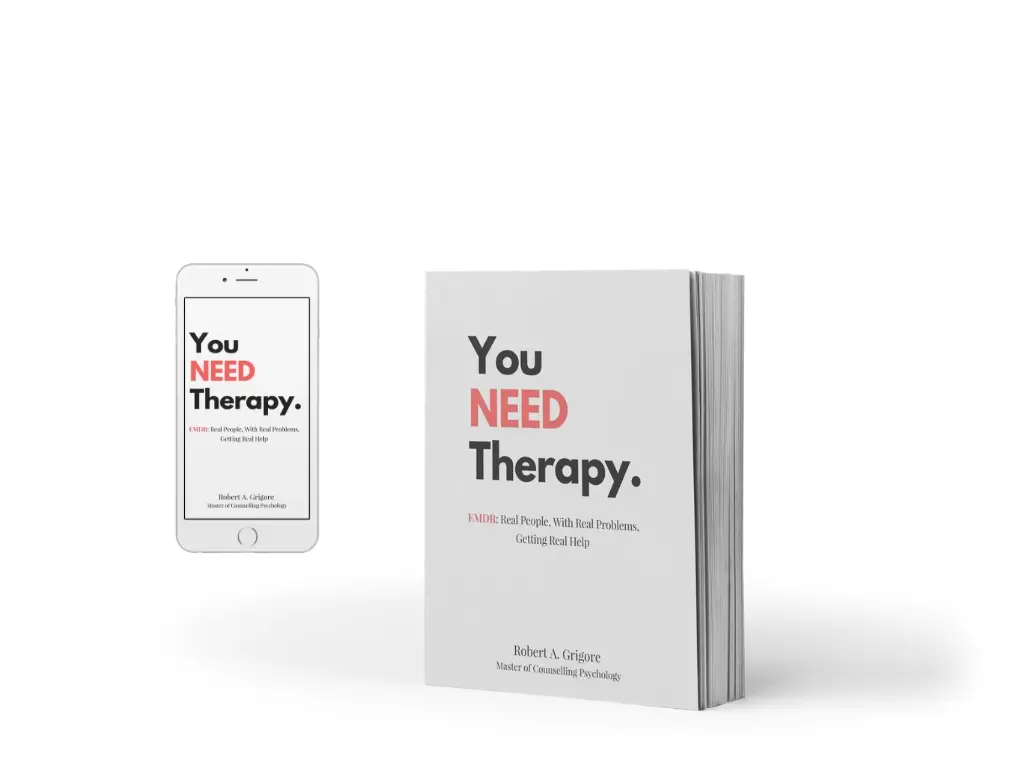Supercharge Your Healing Journey with EMDR Intensives - Unlocking Accelerated Transformations
Unlocking transformation and healing can sometimes feel like an uphill battle. As we navigate through traumatic experiences and emotional wounds, it’s essential to find effective methods that can accelerate our healing journey. Enter EMDR Intensives – a powerful therapeutic approach that has been gaining recognition for its ability to supercharge the healing process.
EMDR, which stands for Eye Movement Desensitization and Reprocessing, is a proven technique used to address and relieve symptoms of trauma, anxiety, and other emotional distress. By tapping into the brain’s natural processing ability, EMDR helps individuals reprocess traumatic events, ultimately reducing the emotional charge attached to them.
EMDR Intensives take this approach to the next level. Instead of spreading therapy sessions over an extended period, intensives condense the treatment into a focused and immersive experience. This concentrated format allows individuals to deeply explore and process their emotional wounds, accelerating the healing process significantly.
Whether you’re dealing with PTSD, phobias, or deeply embedded negative beliefs, EMDR Intensives offer a transformative opportunity to break free from the shackles of past trauma. Discover how these intensives can bring about profound healing and help you unlock a brighter future.
Understanding EMDR therapy
EMDR, or Eye Movement Desensitization and Reprocessing, is a powerful therapeutic approach that has revolutionized the way we address and heal from traumatic experiences. At its core, EMDR therapy leverages the brain’s natural ability to process and integrate information, helping individuals reprocess and release the emotional charge associated with past traumas.
The foundation of EMDR therapy lies in the understanding that traumatic memories are stored in the brain in an unprocessed state, leading to a range of psychological and physiological symptoms. By using a bilateral stimulation (generally in the form of some combination of eye movements, physical tapping, and/or audio tones), EMDR therapy helps the brain to tax the working memory, which first neutralizes the symptoms, then to reprocess these memories, allowing the individual to integrate them in a healthier and more adaptive way.
During an EMDR session, the therapist guides the client through a series of eye movements or other forms of bilateral stimulation while the client focuses on a specific traumatic memory or disturbing thought. This process helps to activate the brain’s natural information processing system, facilitating the integration of the traumatic memory and reducing its emotional impact.
Over the course of several sessions, the client often experiences a significant reduction in symptoms, such as flashbacks, anxiety, and negative beliefs, as the brain rewires itself to process the trauma more effectively.
The benefits of EMDR intensives
While traditional EMDR therapy can be highly effective, EMDR intensives take the healing process to a whole new level. EMDR intensives are a concentrated and immersive form of EMDR therapy, where clients engage in multiple EMDR sessions over a shorter period, often within a few consecutive days to a single week.
One of the primary benefits of EMDR intensives is the accelerated pace of healing. By dedicating a focused block of time to the EMDR process, clients are able to delve deeper into their emotional wounds and make more substantial progress in a shorter timeframe. This concentrated approach allows the brain to work through and integrate traumatic memories more efficiently, leading to a more rapid reduction in symptoms and a quicker return to a state of emotional well-being.
Another key advantage of EMDR intensives is the increased momentum and commitment to the healing journey. When clients commit to an intensive EMDR experience, they are fully immersed in the process, allowing them to maintain a heightened level of focus and engagement throughout the sessions. This focused attention and dedication can lead to a more profound and lasting transformation, as the client’s mind and body work together to release the grip of past traumas.
-> Let's Talk EMDR! With Kim Howard Podcast Episode<-
What is an EMDR therapy intensive? Find out what EMDR-certified therapist and consultant Robert A. Grigore, MCC, RCC, has to say about them. Learn how EMDR intensives can help to heal trauma, how to find an EMDR therapist who knows how to do intensives, what to ask your potential EMDR therapist about certifications, their area of expertise, and what you need to know as a potential client.

How EMDR intensives work
EMDR intensives typically involve a series of consecutive EMDR sessions, often ranging from 2 to 6 hour-long sessions over the course of a few days or a week. During these sessions, the client works closely with a trained EMDR therapist to identify and process specific traumatic memories or emotional disturbances.
The EMDR process within an intensive format follows the same 8-phase structured protocol (in most cases) that includes several key phases. First, the therapist and client collaborate to establish a safe and trusting therapeutic relationship, and the client’s treatment goals are clearly defined. Next, the therapist guides the client through a detailed assessment of the target memory or issue, exploring the associated thoughts, emotions, and physical sensations.
Once the target(s) has been identified, the client undergoes the core EMDR desensitization and installation (reprocessing) phases, which involve the therapist directing the client’s eye movements or other forms of bilateral stimulation while the client focuses on the target memory or issue. This process helps to activate the brain’s natural information processing system, allowing the client to reprocess the traumatic memory and integrate it in a more adaptive way.
Throughout the intensive sessions, the therapist closely monitors the client’s progress, making adjustments to the EMDR protocol as needed. The client may also engage in additional exercises, such as resource development and installation, to enhance their coping skills and resilience. By the end of the intensive, the client often experiences a significant reduction in the emotional charge associated with the targeted trauma(s), as well as an increased sense of empowerment and well-being.

The difference between regular EMDR sessions and intensives
While both regular EMDR sessions and EMDR intensives follow the same core principles and protocols, there are several key differences that set the intensive approach apart.
The primary distinction lies in the frequency and duration of the sessions. Regular EMDR therapy typically involves weekly or bi-weekly sessions, with each session lasting around 60-90 minutes. This gradual, incremental approach allows the therapist and client to build a strong therapeutic relationship and work through the client’s emotional wounds over a period of several months (typically 3-6 months of weekly sessions, with some clients requiring more and some fewer sessions).
In contrast, EMDR intensives condense the therapy into a more concentrated timeframe, often with longer sessions (2-6 hours) scheduled within a few consecutive days or a single week. This immersive format allows the client to fully immerse themselves in the EMDR process, maintaining a heightened level of focus and momentum throughout the intensive experience.
Another key difference is the depth and pace of the healing journey. While regular EMDR sessions can certainly be effective, the intensive format enables the client to delve deeper into their emotional wounds and make more substantial progress in a shorter timeframe. The concentrated nature of the intensive allows the brain to process and integrate more traumatic memories in a shorter period of time without having to “open and close” the neurological network for relatively brief processing periods. This adapted method makes the sessions more efficient, leading to a more rapid reduction in symptoms and a quicker return to a state of emotional well-being.

Who can benefit from EMDR intensives
EMDR intensives can be beneficial for a wide range of individuals who are seeking to address and heal from traumatic experiences, emotional distress, and other mental health challenges. Whether you’re struggling with PTSD, anxiety, phobias, self-sabotaging behaviours, or deeply embedded negative beliefs, EMDR intensives can provide a powerful and transformative pathway to healing.
One group that often finds great success with EMDR intensives is individuals who have experienced complex or developmental trauma, such as childhood abuse, neglect, or attachment issues. These deeply rooted emotional wounds can be particularly challenging to address through traditional therapy, but the concentrated and immersive nature of EMDR intensives can be highly effective in facilitating the healing process.
EMDR intensives can also be beneficial for those who have faced a specific traumatic event, such as a car accident, natural disaster, or military combat. The intensive format allows these individuals to quickly and safely process the emotional impact of the trauma, reducing the risk of long-term PTSD and other debilitating symptoms.
Additionally, EMDR intensives can be helpful for individuals struggling with anxiety, phobias, or deeply embedded negative beliefs that are hindering their personal or professional growth. By targeting the root causes of these issues through the EMDR process, clients can experience a profound shift in their mindset and behavior, unlocking new possibilities for their lives.
One often overlooked marginalized population who tend to take advantage of EMDR intensives are middle to upper-level professionals (whether business owners, executive managers, CEOs, professional athletes, musicians, and more) who have difficulty committing to regular sessions due to hectic schedules, or where time is of the essence (for example with upcoming big events, presentations, relationship problems, addictions, court proceedings, etc.). For these individuals and couples, it can be quite suitable to inform their teams or management they’ll be taking 1-2 weeks off for “vacation,” and then returning as the best version of themselves.
Finally, those who are looking to use up services remaining on their benefits plans before the end of the year for their providers, may find it useful to engage a qualified EMDR therapist for EMDR intensives. Scheduling an intensive right before renewal and then afterwards can be a clever way of maximizing results for as low an investment as possible.

What to expect during an EMDR intensive
Embarking on an EMDR intensive can be a transformative, yet sometimes daunting, experience. It’s important for clients to understand what to expect during the process to ensure they are fully prepared and can make the most of their intensive journey.
The EMDR intensive typically begins with a comprehensive assessment and preparation phase. During this time, the client will work closely with the EMDR therapist to establish a safe and trusting therapeutic relationship, identify the specific issues or traumas to be addressed, and set clear goals for the intensive experience. The therapist will also teach one or more affect-management skills to ensure the client has the ability to regulate their nervous system before, during, and after the intensive session (if necessary).
Once the preparatory work is complete, the client will begin the EMDR desensitization and installation (reprocessing) phases. These sessions will involve the therapist guiding the client through a series of eye movements or other forms of bilateral stimulation while the client focuses on the target memory or issue. The client may experience a range of emotions, physical sensations, and insights during these sessions as the brain works to reprocess the traumatic information.
Throughout the intensive, the therapist will closely monitor the client’s progress and make any necessary adjustments to the EMDR protocol. The client may also engage in additional exercises, such as resource development and installation as needed, to enhance their coping skills and resilience. Regular breaks and self-care practices will be encouraged to support the client’s well-being during the intensive experience.
By the end of the EMDR intensive, clients often report a significant reduction in the emotional charge associated with their targeted traumas or issues. They may also experience a greater sense of empowerment, clarity, and overall well-being, setting the stage for continued growth and transformation in their lives.

Finding a qualified EMDR therapist
Engaging in an EMDR intensive is a highly specialized and transformative process, and it’s essential to work with a qualified and experienced EMDR therapist who has experience working in this format to ensure the best possible outcomes. When searching for an EMDR therapist to facilitate your intensive experience, there are several key factors to consider.
First and foremost, it’s important to ensure that the therapist is fully trained and certified in EMDR therapy. EMDR is a highly structured and evidence-based approach, and it’s crucial that the therapist has completed the necessary training and supervision to effectively implement the protocols. Look for therapists who have received their EMDR certification from an accredited EMDR training program.
Additionally, it’s beneficial to seek out a therapist who has specific experience in conducting EMDR intensives. While all EMDR-trained therapists can provide regular EMDR sessions, those with specialized expertise in the intensive format will be better equipped to guide you through the unique challenges and opportunities that arise during a concentrated EMDR experience.
When evaluating potential EMDR therapists, be sure to ask about their experience, success rates, and approach to EMDR intensives. It’s also important to assess the therapist’s communication style and whether you feel a strong sense of trust and rapport. The therapeutic relationship is a crucial element of the EMDR process, so finding a therapist with whom you feel comfortable and supported is essential.
Finally, consider practical factors such as the therapist’s location, availability, and fees. EMDR intensives may require a significant time commitment and or a higher investment, so it’s important to find a therapist whose schedule and services align with your needs and budget.

Preparing for an EMDR intensive
Embarking on an EMDR intensive is a significant undertaking, and it’s essential to prepare both mentally and physically for the journey ahead. By taking the time to set the stage for a successful intensive experience, you can maximize the benefits and set yourself up for lasting transformation.
One of the most important steps in preparing for an EMDR intensive is to cultivate a strong support system. Inform your loved ones, friends, and colleagues about your upcoming intensive and enlist their understanding and encouragement. Having a network of supportive individuals who can offer emotional and practical assistance can be invaluable during the intensive experience.
Ensure you have scheduled yourself appropriately. While a well-trained EMDR therapist experienced in delivering EMDR intensives should be able to remain flexible with your current presentation, knowing that you can simply focus on your treatment can help you relax and trust the process.
It’s also crucial to prioritize self-care practices leading up to and during the intensive. Ensure that you are getting enough rest, eating a nutritious diet, and engaging in activities that help you manage stress and promote overall well-being. Consider incorporating mindfulness techniques, such as meditation or deep breathing exercises, to help you stay grounded and centered throughout the process.
Additionally, take the time to reflect on your goals and intentions for the EMDR intensive. What specific issues or traumas do you hope to address? What would a successful outcome look like for you? Clarifying your objectives can help you stay focused and motivated during the intensive experience.
Finally, be prepared to be open, honest, and fully engaged during the EMDR sessions. The intensive format requires a significant investment of time and emotional energy, so approach the experience with a willingness to confront your challenges and embrace the healing process, even when it may be difficult or uncomfortable at times.
EMDR intensive evidence
While EMDR therapy has been around for over 30 years and subsequently has enormous evidence for its effectiveness, EMDR intensives are still a relatively new method. However, still, several studies have been conducted which support the effectiveness of EMDR intensive formats.
In 2017, Bongaerts, van Minnen, and d Jongh conducted a study with 7 participants with complex PTSD presentations, undergoing an 8-day EMDR intensive. Participants underwent 3-hour EMDR intensives (90 minutes in the morning, 90 minutes in the afternoon), combined with physical activity for four days in a row, then four consecutive days following a break for the weekend. The results indicated 4 participants completely lost their PTSD diagnosis, with two experiencing the complete elimination of symptoms. This study not only indicated the potential effectiveness for EMDR intensives, but also indicated the possibility of conducting EMDR intensives within an in-patient facility without a dedicated stabilization phase (no participants decompensated).
In 2018 Mendez, Nijdam, June ter Heider, van der Aa, and Olff conducted a study consisting of just 5 treatment days of EMDR combined with trauma-informed yoga (13.5-15 hours of EMDR total, with 4-5 hours of yoga total). The results were excellent where 82% of participants reported improvements with their PTSD symptoms.
Success stories and testimonials from EMDR intensive participants
As EMDR intensives continue to gain recognition for their transformative power, more and more individuals are sharing their remarkable stories of healing and personal growth. These testimonials offer a glimpse into the profound impact that this concentrated approach to EMDR therapy can have on people’s lives.
One client Denise, who struggled with relentless self-criticism and self-doubt due to being raised in an emotionally abusive environment, said of her experience after her EMDR intensive:
Words simply cannot describe the changes I have undergone working with Robert! I have experienced so much emotional trauma, I truly believed some of it was going to be stuck with me. Little did I know that Robert’s techniques through EMDR were going to repattern it all, but that is exactly what happened.
As a current Trauma Specialist, I cannot recommend Robert highly enough! His work is spot on and he is one of the most empathetic people I have ever met. He belongs in this line of work and it truly gifted at what he does for others.
I am no longer plagued with that last bit of “stuff” that I thought was going to be part of me forever. I am completely free of it and you can be, too!
Denise was kind enough to allow us to record her EMDR intensive and fully consented to sharing with others as a demo (below).
Another client, Charles, a retired professional hockey player turned personal development coach, left a Google Review for others to read of his experience:
Before working with Robert I had a life long challenge with low self-worth. Little did I know prior to the work Robert and I did just how much it was impacting me in every area of my life. Working through this with Robert was amazing to say the least. He creates a safe and loving environment that allowed me to be vulnerable in ways I have never been before. Since working with Robert, my life has changed tremendously and for the first time in my life I feel worthy in ways I never thought possible. I highly recommend Robert to anyone looking to heal and live the life they desire and deserve. I would encourage you to just reach out and have a consultation, it will be one of the best things you will ever do for yourself.
Another client, Andrea, who underwent the Total Immersion EMDR process (developed by Robert Grigore), shared her testimonial below:
Andrea even offered to share her EMDR session which targeted the removal of her negative association with money, allowing her to attract more money into her life.
These powerful testimonials and demos underscore the profound impact that EMDR intensives can have on individuals’ lives, offering hope and inspiration to those who are seeking a transformative path to healing and personal growth.
Conclusion: Embracing transformation through EMDR intensives
As we navigate the complex and often daunting journey of healing from trauma, emotional distress, and deeply embedded negative beliefs, it’s essential to seek out effective and transformative therapeutic approaches. EMDR intensives represent a powerful and accelerated pathway to unlocking the healing potential within us all.
By immersing ourselves in the concentrated EMDR process, we can tap into the brain’s natural ability to reprocess and integrate traumatic memories, reducing the emotional charge associated with them and paving the way for a brighter, more empowered future. Whether you’re struggling with PTSD, anxiety, phobias, or deeply rooted negative beliefs, EMDR intensives offer a profound opportunity to break free from the shackles of the past and embrace a life of greater peace, purpose, and fulfillment.
As you embark on this transformative journey, remember that you are not alone. Countless individuals have experienced the life-changing benefits of EMDR intensives, and with the guidance of a qualified and experienced EMDR therapist, you too can unlock the power of this remarkable therapeutic approach. Embrace the challenge, trust the process, and be open to the profound shifts that await you on the other side.
Your healing journey may not be an easy one, but with the support of EMDR intensives, you can supercharge your progress and unlock a future filled with hope, resilience, and boundless possibilities. Embrace the opportunity to transform, and let the healing begin.











